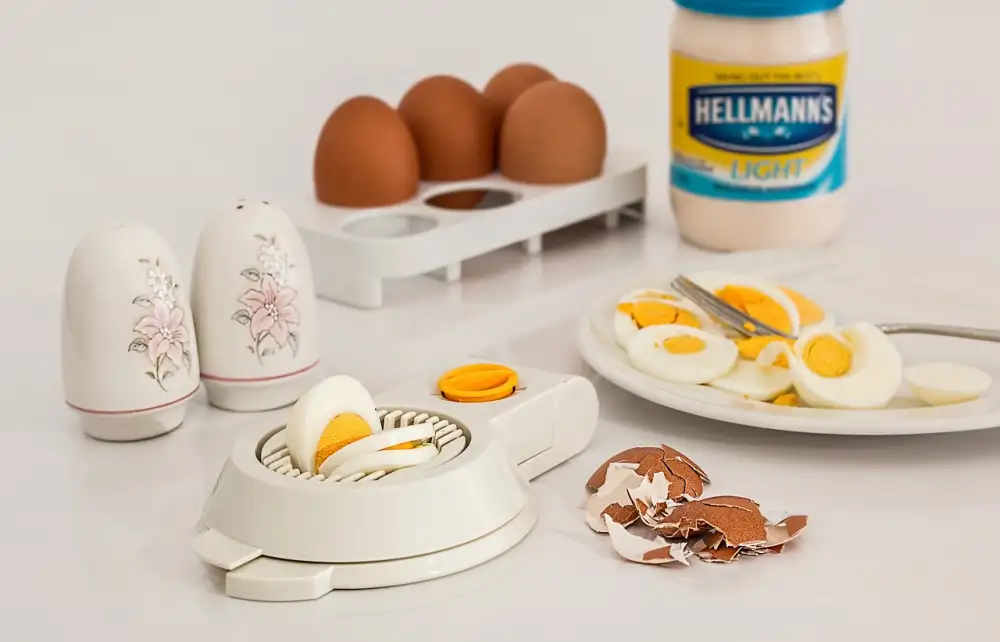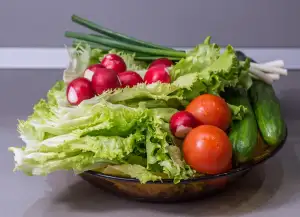Perfectly Cooked Hard-Boiled Eggs: A Foolproof Guide to Mastering the Art of Boiling Eggs

Hard boiled eggs are a classic and versatile dish that can be enjoyed in a variety of ways. Whether you prefer them as a quick and nutritious snack, or as an ingredient in salads, sandwiches, or deviled eggs, mastering the art of boiling eggs is essential. The process may seem simple, but achieving the perfect balance of a firm yet tender yolk can be a challenge. In this guide, we will take you through the steps to ensure that your hard boiled eggs turn out perfectly every time. So let's dive in and discover the secrets to cooking the ultimate hard boiled egg!
Benefits of Hard Boiled Eggs
Hard boiled eggs offer a multitude of benefits that make them a popular choice among health-conscious individuals. Firstly, they are an excellent source of high-quality protein, which is essential for muscle repair and growth. Additionally, hard boiled eggs are rich in vitamins and minerals such as vitamin A, vitamin D, vitamin B12, and iron. These nutrients contribute to overall health and wellbeing. Moreover, hard boiled eggs are low in calories and carbohydrates, making them a perfect snack for those watching their weight or following a low-carb diet. Lastly, they are convenient and portable, making them an ideal on-the-go option for busy individuals. With all these benefits combined, it's no wonder that hard boiled eggs have become a staple in many people's diets.
Step-by-Step Guide to Making Hard Boiled Eggs
1. Selecting and Preparing the Eggs: Start by choosing fresh eggs, as they are easier to peel. Place them in a single layer in a saucepan and add enough water to cover the eggs completely.
2. Boiling the Eggs: Place the saucepan on the stove over medium heat and bring the water to a gentle boil. Once it starts boiling, reduce the heat to low and let it simmer for about 9-12 minutes, depending on your desired level of doneness.
3. Cooling and Peeling the Eggs: After cooking, remove the saucepan from heat and carefully drain out the hot water. Transfer the eggs to a bowl filled with ice water and let them cool for at least 5 minutes. Gently tap each egg on a hard surface to crack its shell, then peel off the shell under running water for easier removal.
By following these simple steps, you'll achieve perfectly cooked hard-boiled eggs every time.
Selecting and Preparing the Eggs
To achieve perfectly cooked hard-boiled eggs, it is crucial to start with fresh eggs. When selecting eggs, look for ones that are not cracked or damaged. Fresh eggs will have a firm white and a rounded yolk.
Before boiling the eggs, it is important to prepare them properly. Start by gently placing the eggs in a single layer in a saucepan. Make sure there is enough room for the eggs to move around without touching each other.
Next, add enough cold water to the saucepan to cover the eggs by about an inch. Adding a pinch of salt to the water can help prevent cracking and make peeling easier later on.
Allow the eggs to sit in the cold water for a few minutes before turning on the heat. This helps prevent them from cracking when they come into contact with hot water too quickly.
By carefully selecting and preparing your eggs, you are setting yourself up for success in achieving perfectly cooked hard-boiled eggs every time.
Boiling the Eggs
Once you have selected and prepared your eggs, it's time to start boiling them. Follow these simple steps for perfectly cooked hard-boiled eggs:
1. Place the eggs in a single layer at the bottom of a saucepan or pot. Make sure they are not overcrowded.
2. Fill the pot with enough cold water to cover the eggs by about an inch.
3. Place the pot on the stove over medium-high heat and bring the water to a rolling boil.
4. Once the water is boiling, reduce the heat to low and let the eggs simmer for about 9-12 minutes, depending on your desired level of doneness. For slightly soft centers, go for 9 minutes, while 12 minutes will give you fully set yolks.
5. While the eggs are simmering, prepare an ice bath by filling a large bowl with cold water and ice cubes.
6. Once the cooking time is up, carefully transfer the eggs from the pot to the ice bath using a slotted spoon or tongs.
7. Let the eggs sit in the ice bath for at least 5 minutes to cool down rapidly and stop them from cooking further.
8. Gently tap each egg on a hard surface to crack its shell all around.
9. Peel off the shell starting from either end of the egg, using your fingers or a spoon if needed.
Now that you have mastered boiling eggs, it's time to move on to our next step: cooling and peeling them effortlessly!
Cooling and Peeling the Eggs
After boiling the eggs to perfection, it's important to cool them down properly before attempting to peel them. This step is crucial in ensuring that the shells come off easily and cleanly.
Once the eggs have finished cooking, remove them from the pot using a slotted spoon and transfer them immediately to a bowl filled with ice water. The ice water will halt the cooking process and help cool down the eggs rapidly.
Allow the eggs to sit in the ice water for at least 5 minutes, but if you have more time, leaving them for 10-15 minutes will yield even better results. The cold water will cause a slight contraction of the egg whites from the shell, making it easier to peel later on.
To peel the eggs, gently tap each one on a hard surface to create small cracks all over. Then, roll each egg between your palms, applying gentle pressure. This will further loosen the shell and make it easier to remove.
Starting at the wider end of the egg, carefully peel away small pieces of shell while running it under cold water. The water will help wash away any remaining bits of shell and make peeling smoother.
If you encounter any stubborn spots or difficult-to-peel areas, try peeling from a different spot or use a spoon to gently separate the shell from the egg white.
Remember that fresh eggs can be more challenging to peel than older ones due to their lower pH level. So if you're having trouble peeling fresh eggs, try using slightly older ones next time.
With practice and patience, you'll soon become an expert at peeling hard-boiled eggs effortlessly. And once they're peeled, these versatile little gems are ready to be enjoyed in various dishes or simply as a nutritious snack.
Tips and Tricks for Perfect Hard Boiled Eggs
1. Use older eggs: Fresh eggs can be difficult to peel, so it's best to use eggs that are at least a week old.
2. Start with cold water: Place the eggs in a saucepan and cover them with cold water. This helps prevent the eggs from cracking during cooking.
3. Add salt or vinegar: Adding a teaspoon of salt or vinegar to the water can help prevent the egg whites from leaking out if any cracks occur.
4. Use a timer: To achieve the desired level of doneness, set a timer once the water comes to a boil. For soft-boiled eggs, cook for 4-6 minutes; for medium-boiled, cook for 8-10 minutes; and for hard-boiled, cook for 12-14 minutes.
5. Shock in ice water: After boiling, immediately transfer the cooked eggs to a bowl of ice water. This stops the cooking process and makes them easier to peel.
6. Gently tap and roll: To peel hard boiled eggs easily, gently tap them on a hard surface to crack the shell all over. Then roll them between your hands to loosen the shell before peeling.
7. Peel under running water: Peeling hard boiled eggs under running water can help remove any stubborn bits of shell and make it easier to get clean, smooth results.
Remember these tips and tricks next time you make hard boiled eggs, and you'll be able to enjoy perfectly cooked eggs every time!
Serving and Enjoying Hard Boiled Eggs
Once your hard boiled eggs are perfectly cooked, it's time to serve and enjoy them. There are countless ways to enjoy these versatile snacks.
One classic option is to simply sprinkle some salt and pepper on the eggs and eat them as is. The creamy yolk and firm white make for a satisfying bite. You can also slice the eggs and use them as a topping for salads, sandwiches, or avocado toast.
For a more indulgent treat, try making deviled eggs. Cut the eggs in half lengthwise, scoop out the yolks, and mix them with mayonnaise, mustard, salt, and pepper. Spoon this mixture back into the egg whites for a delicious appetizer or party snack.
If you're feeling adventurous, experiment with different flavors by adding herbs or spices to your hard boiled eggs. Try sprinkling some paprika or chili flakes on top for a kick of heat. You can also mash the yolks with avocado or hummus for a creamy twist.
Hard boiled eggs are not only tasty but also packed with nutrients. They are an excellent source of protein and contain essential vitamins and minerals like vitamin B12 and selenium. Whether you enjoy them as a quick snack or incorporate them into your meals, hard boiled eggs are a nutritious addition to any diet.
So next time you're looking for a healthy snack option or want to add some protein to your meal, don't forget about the humble hard boiled egg. With their versatility and nutritional benefits, they truly deserve their place in every foodie's playground.
In conclusion, hard boiled eggs are not only a delicious and satisfying snack, but they are also incredibly versatile and nutritious. Whether you enjoy them plain, seasoned with salt and pepper, or incorporated into various dishes like salads or sandwiches, hard boiled eggs can be enjoyed in countless ways.
They are packed with essential nutrients such as protein, vitamins, and minerals that contribute to a healthy diet. Additionally, they are low in calories and high in satiety, making them an excellent choice for weight management.
With the foolproof guide provided in this article, you can now confidently master the art of boiling eggs to perfection. So go ahead and indulge in this simple yet delightful culinary delight. Whether you're on-the-go or looking for a quick snack option at home, hard boiled eggs will never disappoint. Enjoy their versatility and nourish your body with their nutritional benefits.
Published: 30. 11. 2023
Category: Food



